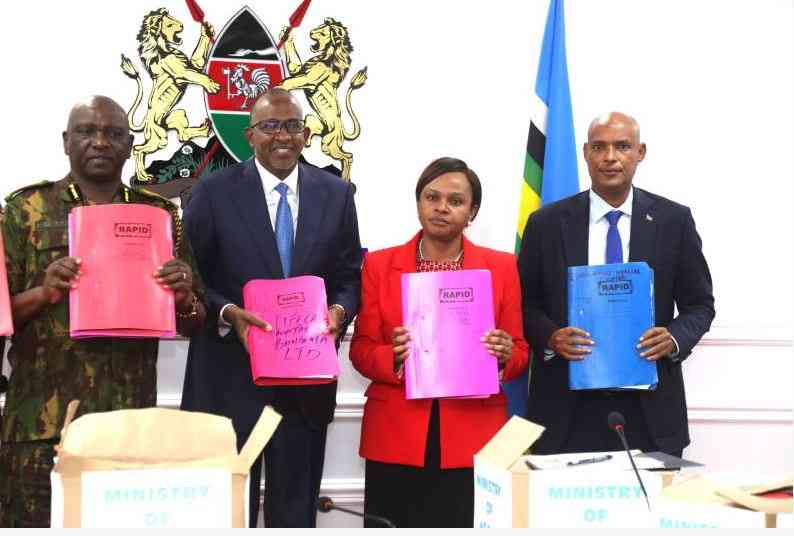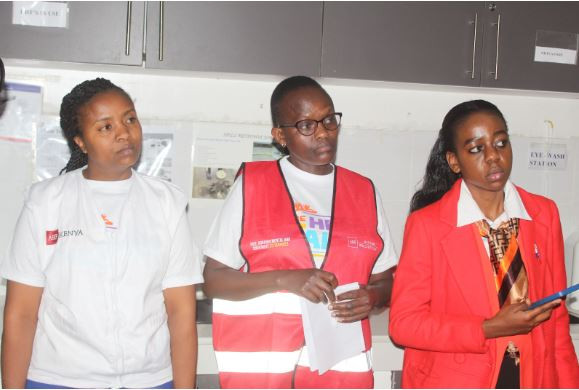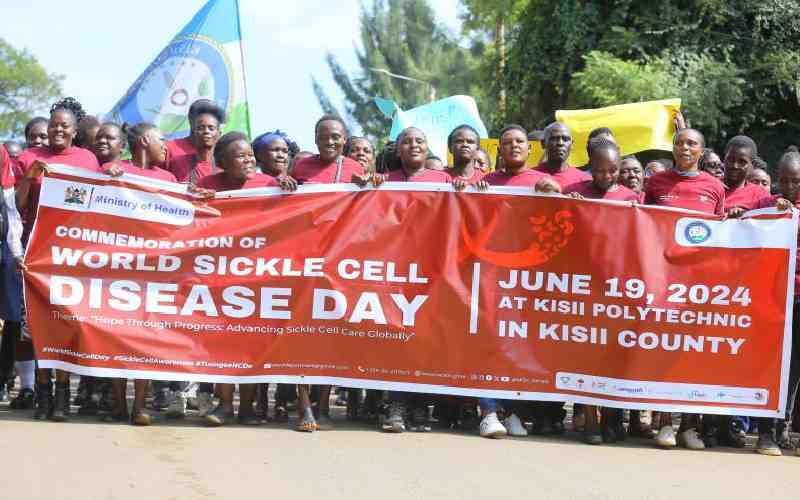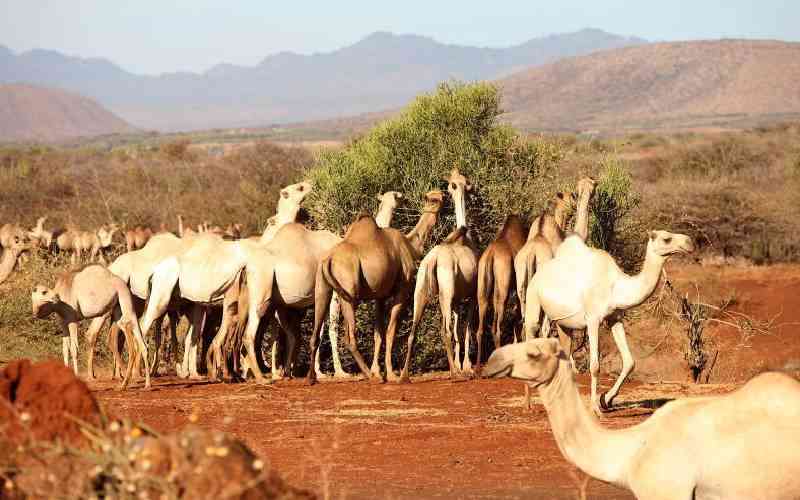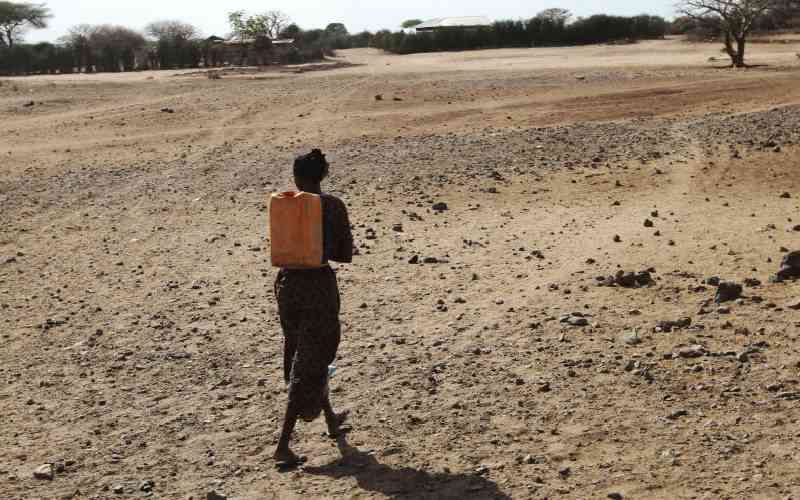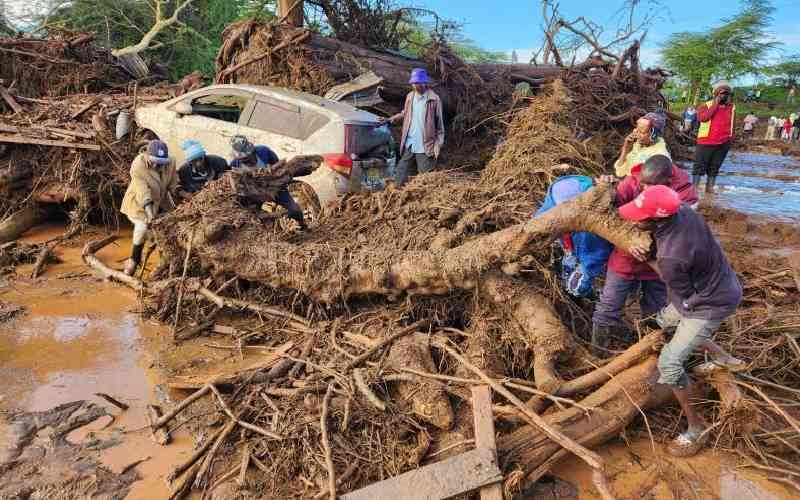
Kenya will allocate five percent of its national Disaster Risk Management budget to early warning systems.
The funds will support upgrades across key institutions and boost outreach activities at sub- county and ward levels.
“We urge counties to integrate early warning outreach in their 2025/26 budgets,” said Environment, Climate Change and Forestry Cabinet Secretary Deborah Barasa,.
This move responds to worsening climate threats. In 2024, floods killed approximately 315 people and affected over 410,000.
Damages were estimated at Sh187 billion. During the same period, failed short rains triggered severe food insecurity. By February 2025, 2.15 million people faced crisis or emergency levels of hunger.
Rural farmers, urban populations, and communities in arid regions remain particularly exposed to extreme weather. Kenya’s average temperature has risen by 1°C since 1960. It could increase by another 2.5°C by 2050.
That change will intensify droughts, floods, and heatwaves. Early warning systems help reduce loss by giving people time to act.
Yet not all Kenyans receive timely or clear alerts. Gaps in coverage, forecasting, data collection, and communication leave many vulnerable. The Early Warnings for All (EW4All) initiative, launched globally in 2022 by the UN, aims to change that.
- Red Cross steps up HIV drive amid aid cuts
Keep Reading
By 2027, the programme targets universal coverage of early warning systems for all people. Kenya is now developing a national roadmap aligned with this global goal.
The EW4All initiative is built around four pillars: Know the risks (collecting local data and identifying vulnerable populations); Watch and predict (enhancing hazard monitoring and forecasting); Get the message out (ensuring warnings are accessible and actionable); and Be ready (building capacity to respond rapidly at national and local levels). These pillars must function together to save lives.
Dr Barasa announced Kenya’s commitment during the EW4All launch.
“The Government of Kenya is committed to sustainably financing this initiative,” she said.
Many counties still lack basic infrastructure for hazard monitoring. Dr David Gikungu, Director of the Kenya Meteorological Department, called for increased investment in underserved regions.
“We aim to meet global standards for early warning observation. We must fill gaps in ASAL counties and coastal zones,” he said.
The climate crisis is already costing Kenya 3–5 per cent of its GDP annually. The country’s Nationally Determined Contribution (NDC) for 2031–2035 estimates that USD 56 billion (Sh7.2 trillion) will be required for climate action. Of that, 32 per cent (USD 17.7 billion) is earmarked for adaptation, including early warning systems.
Joseph Mogosi, Principal Secretary in the State Department for Social Protection, stressed the need for a cultural shift.
“Kenya must move from disaster response to early action,” he said. “These systems deliver accurate, timely information that saves lives and livelihoods, especially for vulnerable populations.”
The Kenya Red Cross Society (KRCS) has witnessed the benefits first-hand. KRCS Secretary General Ahmed Idris termed anticipatory action a game-changer. “Early warnings save lives only if they lead to inclusive, coordinated action,” he said. “We must invest in community awareness and inclusion — especially youth, women, and persons with disabilities.”
Development partners are backing the effort. The UK government has pledged up to £30 million (Sh4.8 billion) for Africa’s climate adaptation, including £4 million (Sh660 million) for Kenya.
Italy is also supporting the initiative through its development agency. Valeria Buoninfante of the Italian Agency for Development Cooperation (AICS) said: “Disaster risk reduction is a priority.” WISER Kenya, a UK-supported climate services programme, is helping build local resilience. In Garissa and Tana River, local authorities now use seasonal forecasts to inform action plans.
Neil Wigan, British High Commissioner to Kenya, observed. “This shows that when early warnings are in place, they save lives and strengthen local economies,” Wigan added, citing a 30 per cent drop in weather-related deaths and $44 million (Sh5.6 billion) in economic gains for fishing communities around Lake Victoria.
 The Standard Group Plc is a multi-media organization with investments in media
platforms spanning newspaper print
operations, television, radio broadcasting, digital and online services. The
Standard Group is recognized as a
leading multi-media house in Kenya with a key influence in matters of national
and international interest.
The Standard Group Plc is a multi-media organization with investments in media
platforms spanning newspaper print
operations, television, radio broadcasting, digital and online services. The
Standard Group is recognized as a
leading multi-media house in Kenya with a key influence in matters of national
and international interest.

